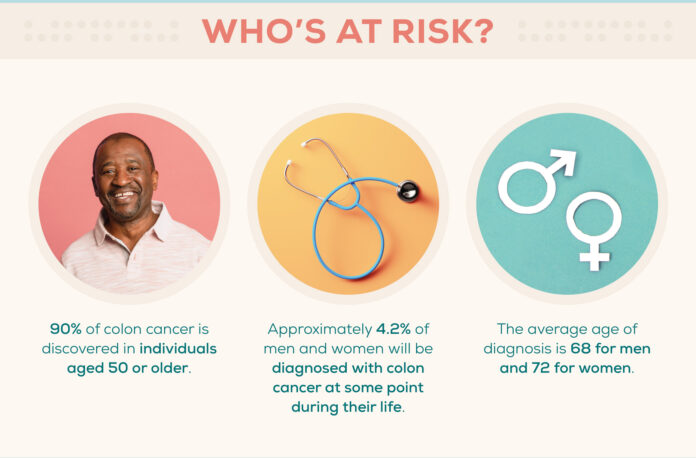
Colon cancer, also known as colorectal cancer, is one of the most prevalent types of cancer worldwide. While several risk factors contribute to its development, one that stands out is a family history of the disease. Numerous studies have shown a clear link between family history and an increased risk of colon cancer. In this article, we will delve into the reasons behind this connection, explore the hereditary nature of colon cancer, and address some frequently asked questions on this topic.
The Hereditary Nature of Colon Cancer:
Colon cancer can be divided into two categories – sporadic and hereditary. Sporadic cases account for the majority of colon cancer diagnoses and arise due to genetic mutations acquired during a person’s lifetime. On the other hand, hereditary colon cancer is caused by specific gene mutations inherited from one or both parents.
Hereditary colon cancer syndromes, such as familial adenomatous polyposis (FAP) and Lynch syndrome (hereditary non-polyposis colorectal cancer), are caused by specific inherited gene mutations. These mutations significantly increase the risk of developing colon cancer. For instance, individuals with FAP have nearly a 100% lifetime risk of developing colon cancer if appropriate preventive measures aren’t taken.
The Link Between Family History and Colon Cancer Risk:
When it comes to colon cancer, having one or more first-degree relatives (parents, siblings, or children) with the disease substantially increases an individual’s risk. Studies have shown that individuals with a first-degree relative affected by colon cancer have a two to three times higher risk of developing the disease themselves.
The risk further increases if the affected relative was diagnosed at a younger age or if multiple relatives are affected. For example, if a person has two first-degree relatives diagnosed with colon cancer, their risk may rise up to six times higher than average.
FAQs:
Q: Does a family history of other cancers increase the risk of colon cancer?
A: While certain cancers, such as ovarian, endometrial, and stomach cancer, have been associated with an increased risk of colon cancer, the risk is not as significant as having a family history of colon cancer itself.
Q: Are there specific genetic tests available to determine an individual’s risk of hereditary colon cancer?
A: Yes, genetic testing is available to identify gene mutations associated with hereditary colon cancer syndromes. These tests can identify mutations in genes such as APC or MLH1, allowing for proactive medical management and preventive measures.
Q: Is it possible to develop colon cancer even without a family history?
A: Yes, sporadic cases of colon cancer can occur in individuals with no family history of the disease. Factors such as age, diet, lifestyle, and personal medical history also play important roles in the development of colon cancer.
Q: How can individuals with a family history of colon cancer reduce their risk?
A: Those with a family history of colon cancer should undergo regular screenings, such as colonoscopies, at an earlier age than recommended for the general population. Lifestyle modifications, including maintaining a balanced diet, engaging in regular physical activity, and avoiding risk factors such as smoking and excessive alcohol consumption, can also help reduce the risk.
Q: Can genetic counseling be beneficial for individuals with a family history of colon cancer?
A: Yes, genetic counseling can provide valuable insights into an individual’s risk of hereditary colon cancer based on family history and genetics. It involves a thorough evaluation of personal and family medical history, followed by recommendations tailored to the individual’s risk factors.
In conclusion, understanding the link between family history and the risk of colon cancer is crucial for early detection and preventive measures. While hereditary colon cancer syndromes present a significant risk, even a non-hereditary family history can increase the likelihood of developing the disease. Regular screenings, lifestyle modifications, and genetic counseling can greatly assist individuals in managing their risk and ensuring early detection, ultimately improving outcomes for those affected.

















